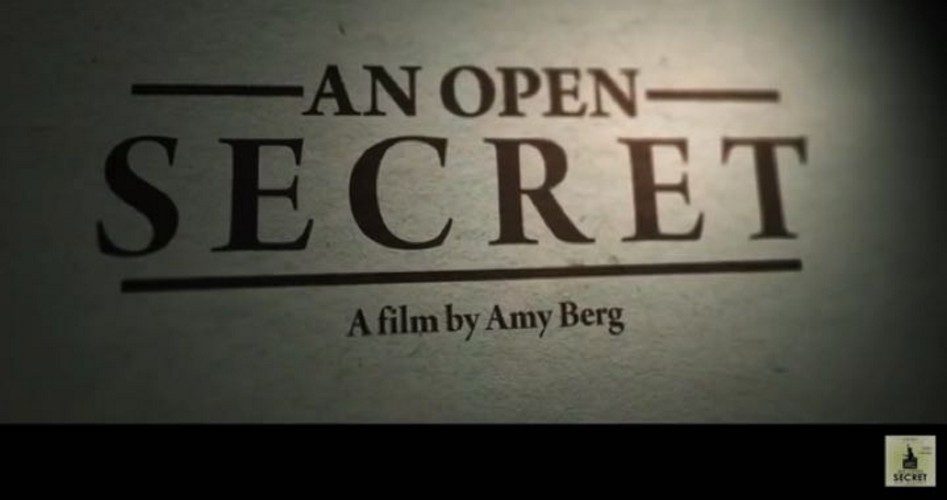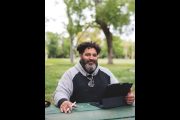
If any good is coming from the Harvey Weinstein affair, it’s that a light is being shined, albeit briefly, on a far greater Hollywood scandal: the sexual abuse of young actors. If it sounds as if I speak of it as “an open secret,” it’s because that’s precisely what it is, as an excellent documentary by that name illustrates most convincingly.
While An Open Secret (AOS) isn’t new any more than is Hollywood child sex abuse (the film was released in 2014/15), the Weinstein scandal has brought it renewed attention. And this it richly deserves. The documentary didn’t do well in theaters, but this is likely, as Flavorwire wrote in November 2014, “due to the fact that distributors won’t touch it. After all, men like Bryan Singer [a director accused of sexual misconduct] make billions of dollars for corporations.”
Directed by Amy Berg — known for her Academy Award-nominated documentary Deliver Us From Evil (2006), about the Catholic Church sex scandal — AOS intimately tells the stories of five ex-child actors who were victimized by Hollywood predators. It features interviews with these abused performers, other ex-child actors who provide corroborating testimony, industry figures, journalists, and the predators themselves (official trailer below).
Much of the documentary focuses on figures associated with a company called Digital Entertainment Network (DEN). DEN, founded in 1998 by homosexuals Marc Collins-Rector and Chad Shackley, was meant to be a version of what Netflix is today, the difference being that its goal was to deliver episodic video content to niche youth audiences. But DEN was a den of iniquity.
Rector, Shackley, and Brock Pierce, a former child actor who became a partner at DEN, hired adolescent boys — aged 13, 14, 15, sometimes a bit older — to star in video content. But the kids also “starred” in something else: after-hours parties at the DEN founders’ Encino, California home, dubbed the M&C Estate, where they were given drugs and where skinny-dipping in the pool and hot tub were mandatory.
A few ex-boy actors detail their abuse at the hands of Collins-Rector, who was ultimately convicted of child sex crimes and is now a registered sex offender. Rector would use everything from cajoling to threats and intimidation — even sometimes pulling a gun on the boys — to impose his will.
Another man figuring prominently in AOS is former youth talent manager Martin Weiss. Caught on audio admitting to molesting one of his 12-year-old clients, he pled guilty to two charges of oral copulation with a child under the age of 14 — and spent a year in prison (ain’t justice grand?).
AOS makes its case effectively not just because of its substance, however, but also its style. As IndieWire wrote in 2014, “Shooting in the cinematic 2.35 ratio — unusual for a documentary on such a sensitive topic — Berg sustains a solemn atmosphere and laces some gorgeous visual motifs throughout: enraged red taillights snaking through the Los Angeles night; gauzy streams of light spilling out of projectors; luminous mansions and glistening, sinuous pools the color of azure sky.”
And this helps to relate the enticements that ensnared the boys. With stars in their eyes and silver-screen dreams, they were lured into the pederasts’ lairs with promises of fame, success, and hedonistic delights. At the M&C Estate the boys could luxuriate in a palatial abode, enjoying lunch served poolside by the chef and amenities such as an in-house movie theater. As one of the ex-child actors put it, “It was like going to Disneyworld.”
AOS also explains how the kids generally are “groomed,” which is a long, slow process by which an abuser gains the parents’ and child’s trust and breaks down barriers between himself and the victim (e.g., making sexual jokes, normalizing nudity). After the abuse, the boys are usually kept silent by guilt, shame, and fear of career destruction. As to the latter, Anne Henry, co-founder of child-actor advocacy group BizParentz, said in AOS that she can’t think of a single example of a child who stepped forward about the abuse and was able to work afterward.
AOS also features statements from high-profile ex-child actors. Different Strokes star Todd Bridges talks about the sexual abuse he suffered at age 11 at the hands of his publicist. Famous ’80s child star Corey Feldman, who has said that pedophiles in Hollywood are “everywhere, like vultures,” is also presented. But most haunting is AOS’s main focus: the stories of the men identified only with their first names and last initial (I know most of their last names, but won’t print them here, though many are easily discoverable).
Evan H., once an aspiring singer and a boy molested by Marty Weiss, speaks candidly about the abuse. Nick S., who had roles in major motion pictures, reveals that his time at DEN left him so scarred he’d sit and cry and think of killing himself. Another DEN victim, Mark R., is now badly disabled and in a wheelchair due to complications stemming from alcohol abuse. These, sadly, are just a few of the victims of the Hollywood pedophile cartel.
There are plenty of victimizers and enablers, too. DEN counted as investors Walt Disney Television President David Neuman, media executive Garth Ancier, film producer David Geffen, businessman Gary Goddard, and Bryan Singer. And as AOS points out, some investors attended the Caligula-like M&C Estate parties and had to know what was going on — the naked boys in the hot tub would have been a strong clue, after all.
AOS also provides a window into the twisted rationalizations of the pederasts. We hear Weiss on audio telling Evan H., alluding to the abuse, “It is a natural function. The only difference between us and the rest of the animals in the animal kingdom is that we socialize it.” … If animals feel like it, “they go for it.” Then there’s ex-child talent manager Michael Harrah, who had young clients living at his house and was also caught on audio admitting inappropriate behavior. He can be heard saying about abuse incidents, “I’m not sure how horrible they really are.” Moreover, he stated that when counseling young actors on the subject, he’d say, “Look, this is not a terrible thing unless you think it is. It’s just something that happens to you in your life.”
That is, in Hollywood life, which amounts to spiritual death. I’ve written about child sex abuse in the entertainment industry for years, in essays such as “Hollywood Dearest: Seared Souls and the Silver Screen” and “Mr. Hollywood Expelled From the Orgy.” Yet is the rampancy of this behavior any surprise? Hollywood has been molesting the minds of American children for decades, disgorging corruptive, politically correct smut as it revels in undermining national morality. If this is the public face it shows, it stands to reason that its private one is far, far worse.
If you wish to view An Open Secret, you can do so on vimeo by clicking the link here.
Image: Screenshot from official advertisement of An Open Secret



